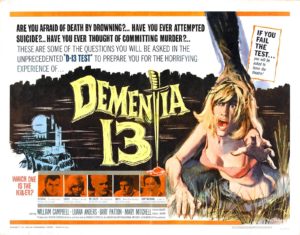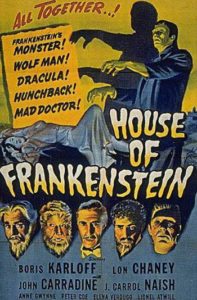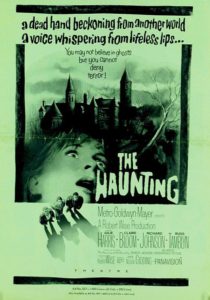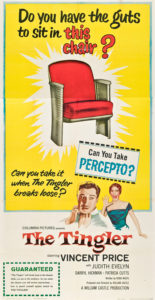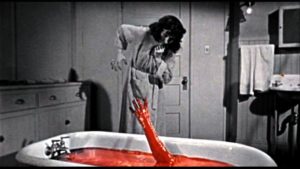The Exorcist is the first films that I can clearly remember as something that was a big cultural phenomenon I was 12 when this R-rated film was released so I did not see it in theaters during its initial theatrical release. However I remember it was talked about, it was on the news, and it was subject to sketch comedy of the popular variety shows. In many ways it was a harbinger of the media saturation to come. Most of all it deserved that hyperbole.
Based on the novel William Peter Blatty, and adapted to the screen by the author, The Exorcist tells the story of a young girl, Regan, living in modern Georgetown possessed by a demon and her eventual 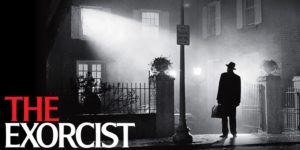 exorcism. Regan’s mother Chris is a successful actress and movies star, a modern woman, a single parent, unreligious, and wholly unprepared for an ancient evil that takes up residence in her daughter. Father Karras is a Jesuit priest, trained in modernity and science, a psychiatrist and a boxer he too is a many thoroughly of the modern world of 1973 and a priest whose faith is crumbling. He too is unprepared to confront a reality of demons and possession. Detective Kinderman is a homicide cop, investigating a bizarre and nearly inexplicable death near the homes. Father Merrin is an elderly Catholic priest in poor health who has experience with this world of demons and is the films titular character. Bound together by the horror that has descended upon Regan these characters confront a world in which evil is not an vague abstract concept with the life and soul of a 12 year old girl hanging in the balance.
exorcism. Regan’s mother Chris is a successful actress and movies star, a modern woman, a single parent, unreligious, and wholly unprepared for an ancient evil that takes up residence in her daughter. Father Karras is a Jesuit priest, trained in modernity and science, a psychiatrist and a boxer he too is a many thoroughly of the modern world of 1973 and a priest whose faith is crumbling. He too is unprepared to confront a reality of demons and possession. Detective Kinderman is a homicide cop, investigating a bizarre and nearly inexplicable death near the homes. Father Merrin is an elderly Catholic priest in poor health who has experience with this world of demons and is the films titular character. Bound together by the horror that has descended upon Regan these characters confront a world in which evil is not an vague abstract concept with the life and soul of a 12 year old girl hanging in the balance.
Blatty, principally known as a comedy writer, wrote the novel plumbing his own faith and questions as a Catholic surviving in the turbulent modern world. Excellently helmed by director William Friedkin, The Exorcist takes its time building to the ‘Roman Ritual’, which serves as the story climax. Preceding Halloween by several years, The Exorcsit does not rely upon gruesome kills and continuous violence to provoke dread and horror but rather takes the audience slowly and inexorably from a bright world of light and reason into one of darkness and the supernatural. More than 40 years old and recently revised by the director into a final cut this is a movie that still works, creating an atmosphere of dread, terror, and leaving the viewer with deep questions, it is a movie worth watching and thinking about.

